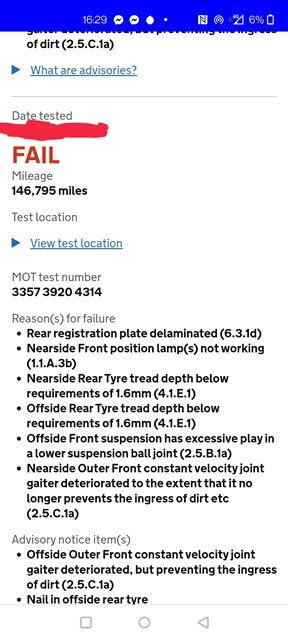Statistics gathered by the RAC show that huge numbers of vehicles are on the road with defective tyres and suspension. Figures from the DVSA indicate that in the year up to March 2022 some 7.3 million “small passenger vehicles” failed their MOTs, of which the majority were for lights/reflectors/electrical which are often an easy fix, but 12% failed on faulty tyres and nearly one-fifth (19%) due to suspension problems.
Translating those figures to real world numbers, that means around 876,000 cars on the road with defective rubber, and a massive 1.3 MILLION with some form of suspension-related damage or wear. With the government proposing that MOTs are only due every two years, drivers themselves are becoming the front line in road safety. Thanks to technological advances in garage equipment, wheel alignment services are are available at more businesses than ever. Gone are the days of the laborious “wheel alignment bay”, modern equipment such as Absolute Alignment’s Bluetooth Lite and top-of-the-range Bluetooth 3D are quick and flexible meaning drivers can take just a few minutes of their busy days to have a car safety health check at their local wheel alignment centre. Failure to do this on the part of motorists is resulting in the huge number of cars failing their MOTs for reasons that can easily be prevented if inspected regularly.
A wheel alignment check can take just a couple of minutes, and a skilled technician can diagnose many problems while inspecting the work required and help the driver stay safe, stay legal and save money – and all for a very reasonble fee for enhanced peace of mind.
Absolute Alignment’s Technical Director Chris Dear says: “These shocking figures show that it is more necessary than ever that drivers take advantage of quick vehicle health checks, and at Absolute Alignment we’re dedicated to making that happen. Our network of Absolute Alignment Approved Centres can check your car very quickly and give an honest opinion of work that needs to be carried out”
Wheel alignment checks are also vital to the well-being of tyres, prolonging their life and even improving fuel consumption. Every driver should check their tyre condition on a regular basis, taking care to ensure tyre pressures are correct. The legal tyre tread depth for cars in the UK and Europe is 1.6mm across the central three-quarters of the tyre, according to law. The tread must meet this minimum requirement across its complete circumference, and there must be no bulges or splits or signs of perishing. If you have any doubts, seek professional advice.
To find your local AAA Centre who can give you professional advice on your car's safety click here.
Parallel Lines
March 2023

